The Panch Kedar Yatra Trek, one of the most popular spiritual treks in the Indian Himalayan region, runs from Urgam at 2134 meters to Tungnath at 3680 meters. The entire length is painted in the mythological colors of the Mahabharata, where the Pandavas traveled to the Himalayas to meet Lord Shiva, who declined due to the Pandavas’ Gau Hatya (Killing Cow) and Brahmacharya. Being one of the famous temples of India, parts of Lord Shiva’s body that appeared in the form of a bull are said to have surfaced at various locations around the Himalayas in the aftermath of the battle.
The forelegs that appeared in Nepal, the bull’s hump at Kedarnath, the torso including the navel at Madhyamaheshwar, the arms at Tungnath, the face at Rudranath, and the matted hair at Kalpeshwar, forming the Panch Kedar in India (excluding Pashupatinath being in Nepal). The Panch Kedar Trek not only takes you to Lord Shiva’s five shrines but also introduces you to isolated villages with old beauty.
The entire trail from Kalgot to Kedarnath, via Rudranath, Mandal, Chopta, Gaundhar, Tungnath, and Madhyamaheshwar, provides ample opportunities to be enchanted by the natural beauty of the region, which is characterized by snow-capped peaks enclosing dense forests and lush green meadows rolling down valleys. The five Kedar are listed below, along with their significance.
History of Panch Kedar Temples
The Shiva cluster of five shrines is the most respected of all the temples dedicated to Lord Shiva. Panch Kedar is their name. According to the Mahabharata, while the Pandavas were looking for Lord Shiva, he disguised himself as a bull to avoid being discovered.
When Bheema attempted to capture the bull, it vanished and reappeared in body pieces in five different locations, which are today known as Panch Kedar. At Kedarnath, the hump resurfaced, the arms appeared in Tungnath, the navel in Madhyamaheshwar, the face in Rudranath, and the hair and head in Kalpeshwar. The Pandavas built temples to worship Shiva at these five locations.
Kedarnath Temple
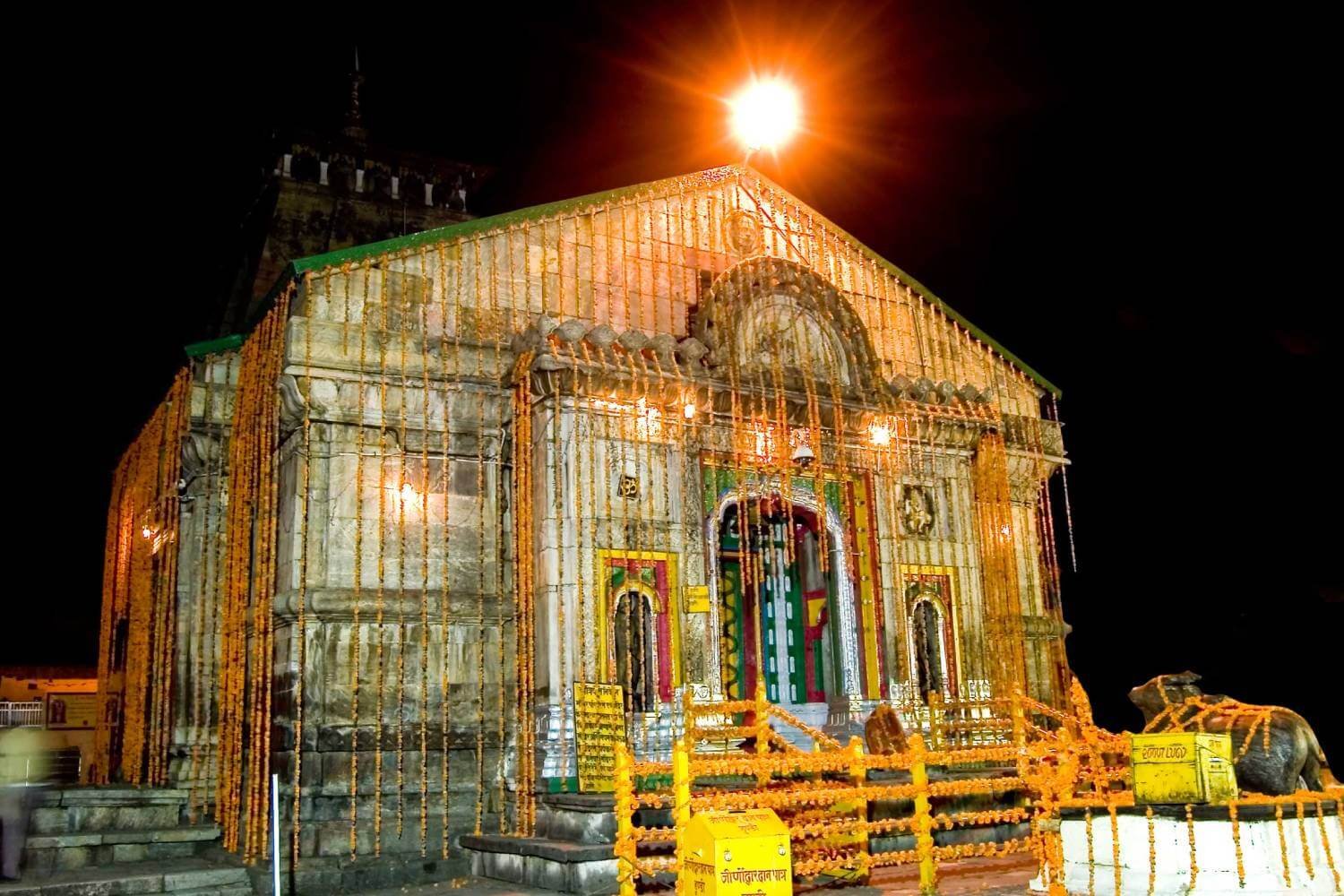
Located in the Rudraprayag district of Uttarakhand, Kedarnath is one of the holy temples of Panch Kedar Shrine. In this temple, conical shaped Shivlinga is present which is believed to be Shiva’s hump.
Tungnath Temple
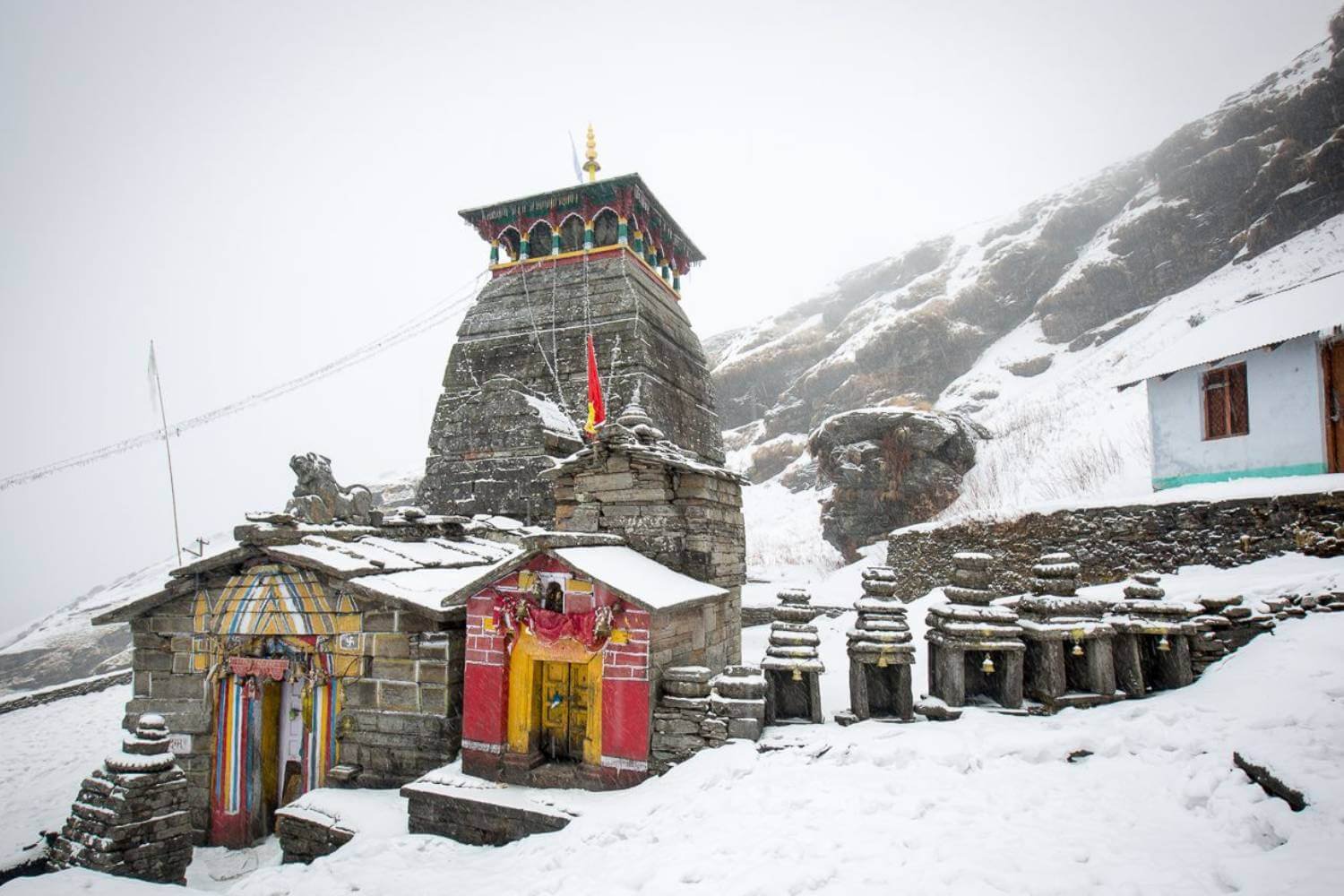
Tungnath is popularly known as the highest Shiva temple. It is believed that here Lord Shiva’s arms appeared.
Rudranath Temple
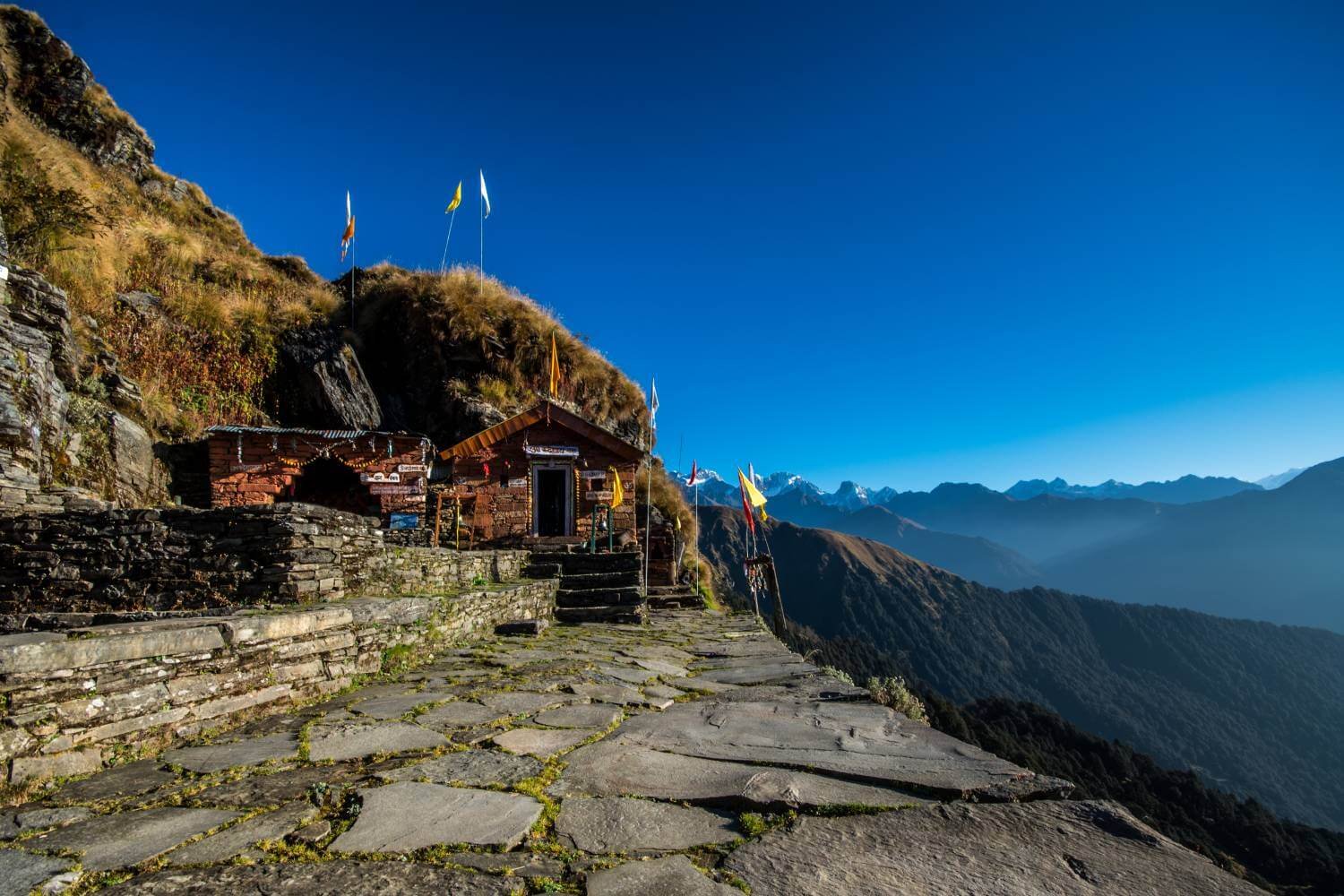
Rudranath is a natural rock temple, where Lord Shiva is worshipped as ‘Neelkanth Mahadev’. Rudranath temple is where lord Shiva’s face emerged from the ground. Surya Kund, Chandra Kund, Tara Kund and Mana Kund are present around the temple.
Madhyamaheshwar Temple
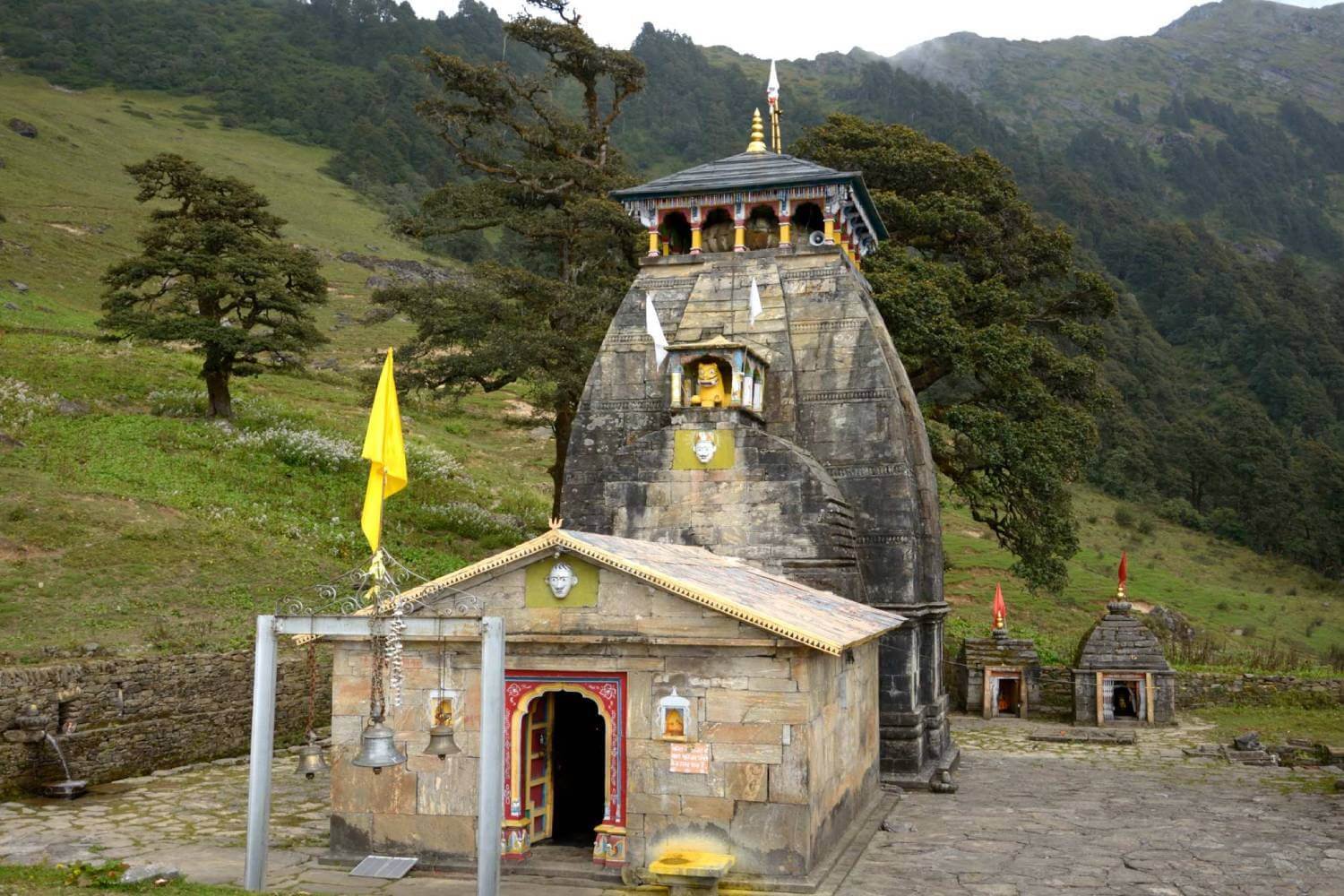
Situated amidst lush green valley of the Mansoona village, Madmaheshwar or Madhyamaheshwar temple is where the middle or navel part of Shiva appeared.
Kalpeshwar Temple
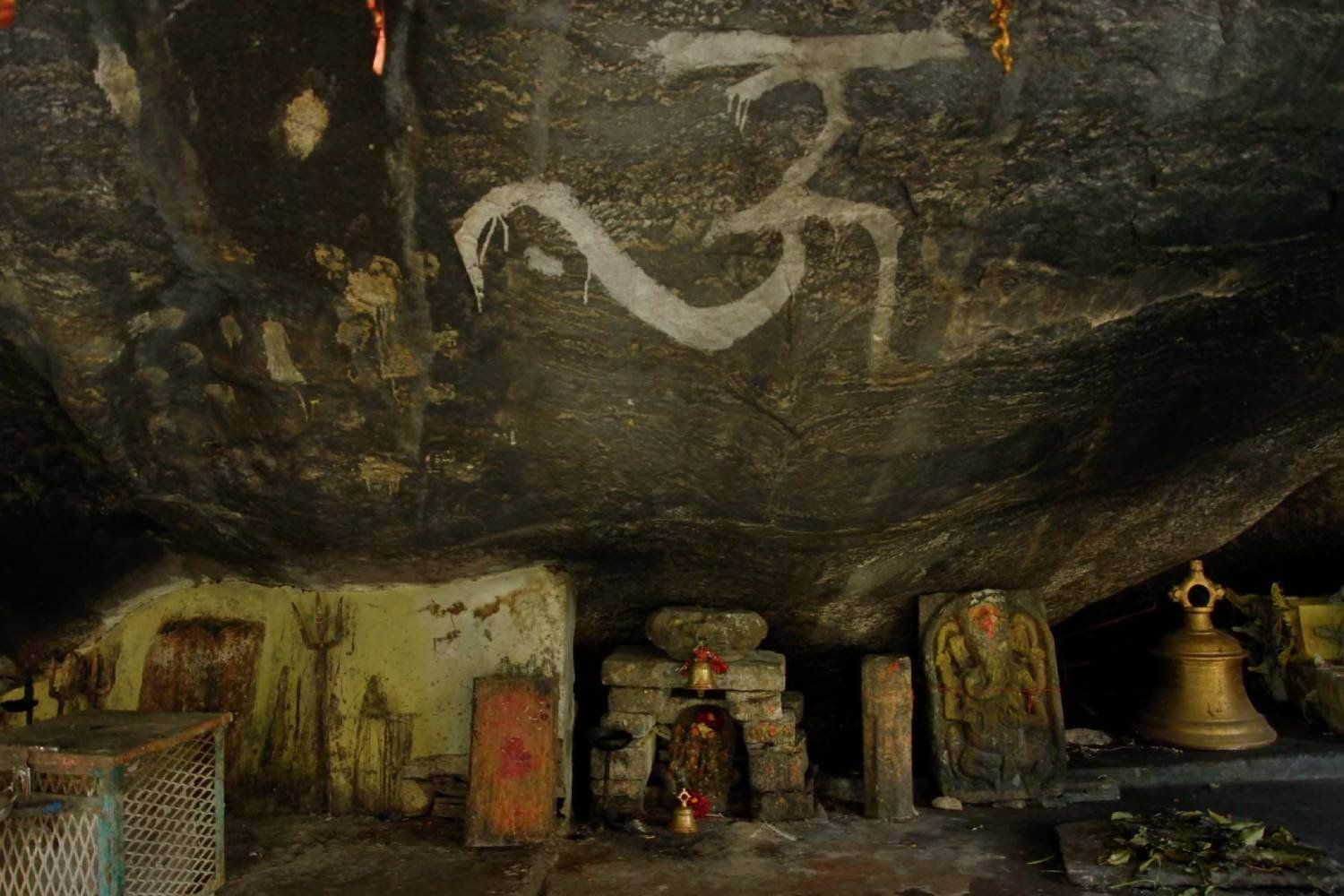
Kalpeshwar is the last temple in this list of Panch Kedar. It’s said that here lord Shiva’s hair appeared and worshipped inside the temple premises. This is the only temple that remains open throughout the year.
Opening and Closing Dates of Panch Kedar Temples
| Temples Name | Opening Date | Closing Date |
| Kedarnath | 02 May 2025 | November 2025 |
| Rudranath | 18 May 2025 | To be Announced |
| Tungnath | 02 May 2025 | To be Announced |
| Madmaheshwar | 21 May 2025 | To be Announced |
| Kalpeshwar | Open round the year | To be Announced |
Panch Kedar Yatra 2025 Trekking Itinerary
To plan your Panch Kedar Yatra Trek, it is very essential to know the proper route as you will be able to calculate the duration of the trek.
Here is a detailed information on How to plan a Panch Kedar Trek.
Day 1 – Arrive at Joshimath
- You’ll arrive in Joshimath, which will serve as the commencement of the Panch Kedar trek.
- The trip from Haridwar to Joshimath, which is around 260 kilometers, will take about 10 hours.
- You will appreciate the entire path because it is breathtaking. You’ll also see where the Alaknanda River and the Bhagirathi River meet to become the Ganga River.
- Spend the night at Joshimath.
Day 2 – Joshimath to Kalpeshwar to Urgam Village
- The second day will require an early start after breakfast since you will be driving 19 kilometers from Joshimath to Kalpeshwar.
- Then it’s a 3-kilometer hike to Urgam Village from Kalpeshwar, which sits at an elevation of 2134 meters and is said to be a popular site for meditation among many sages.
- The entire valley is filled with extremely rich and diverse flora and fauna, which will rejuvenate you.
- Travel to Urgam village after Kalpeshwar. The majority of the trip to Urgam village is a gradual ascent.
- After a long day, rest at one of the Urgam village’s homestays.
Day 3 – Urgam to Kalgot
- Begin your day with a journey from Urgam to Kalgot after a nice breakfast in the homestay.
- It’s a 12-kilometer stretch. Kalgot sits at an elevation of 2183 meters above sea level.
- You will have to travel through a lush forest and listen to the sounds of murmuring waterfalls throughout the initial hike.
- You’ll also witness apple orchards and potato farms, both of which are popular in the Ugram Valley.
Day 4 – Kalgot to Panar Bugyal
- On the fourth day, after some refreshments, you will set out early for the 14-kilometer Kalgot to Panar Bugyal trek, which will require you to climb upward through dense woodland.
- When a gentle breeze caresses your face, you will feel at ease.
- The walk takes you through farm fields, rocky, dusty terrain, and steep climbs.
- You’ll also get to view breathtaking meadows when nature’s grandeur is at its most stunning.
- You will spend the night in a tent under the stars, surrounded by vivid and breathtaking scenery.
Day 5 – Panar to Rudranath and Return
- Following breakfast on the fifth day, you will begin your trek from Panar to Rudranath.
- Rudranath sits at an elevation of 2286 meters above sea level. You will be rewarded with a breathtaking panoramic view of the Himalayas, Nanda Devi, Nanda Ghunti, Trishul, and much more once you arrive at the temple.
- The peaceful scenery will enchant you, and when you’ve experienced tremendous peace, you’ll return to Panar for the night.
Day 6 – Panar to Sagar Village and Drive to Chopta
- On the sixth day, following a good night’s sleep and a hearty breakfast, you’ll depart for Sagar village, your first stop of the day.
- From Panar to Sagar hamlet, the trip passes through dense forests and high-altitude grasslands.
- After that, take a 32-kilometer trip to Chopta, often known as the Garhwal region’s Switzerland.
- This location alleviates the discomfort of a long walk by presenting you with a gorgeous fairy realm.
- After a long day of sightseeing, you will be able to relax and spend the night in a guest home in Chopta.
Day 7 – Chopta to Tungnath to Chandrashila and Back to Ukhimath
- On the seventh day, you will travel to Tungnath, another Lord Shiva shrine that is located at an elevation of 3680 meters above sea level and is the world’s tallest Shiva shrine.
- The trip from Chopta to Tungnath is around 3.5 kilometers long and takes about 4 hours to complete.
- Hiking along a well-made concrete trail through beautiful green alpine fields, dense forests, and snow-capped Himalayan hills is possible.
- After that, you’ll arrive in Chandrashila, which is situated at an elevation of 4000 meters above sea level.
- The breathtaking vista of the Himalayas will charm you on your trek to Chandrashila.
Day 8 – Trek to Nanu, Enroute Madhyamaheshwar
- Ransi is the starting point for another strenuous trek to the famous Madhyamaheshwar temple.
- This route is a 17 km trek to Madhyamaheshwar.
- The Trek will start from Ransi to Gaundhar is 6 km which is mostly flat. After 1 km you will reach Bantoli and from there Nanu is about. The Last stretch from Nanu to Madhyamaheshwar is 6 km, which is steep and treacherous.
- The temple is located amidst the mountains which offers breathtaking views of the Himalayas.
Day 9 – Return to Ransi, Visit Budha Madh
- Budha Madh is at 1,000 ft higher than Madhyamaheshwar.
- Buda Madh is at the top of the ridge which is on the north-west of the temple.
- If you face the temple and start moving on the trail. You will be headed in the direction of Budha Madh
- Proceed on the trail for 30 – 45 minutes till you reach the top. You see mesmerizing views of the Chaukhamba group of peaks and Mandani Parbat from here.
Day 10 – Reach Gaurikund
- The 73 km journey from Ransi to Gaurikund can be broken down into multiple bus rides.
- First to Ukhimath, next to Kund, further on to Sonprayag and finally a shared taxi to Gaurikund. You can also hire a private taxi. This costs around Rs.700 from Ransi to Kund.
- Gaurikund is where the 16 km trek to Kedarnath begins.
Day 11: Trek to Kedarnath
- On reaching Gaurikund, commence your trek to Kedarnath.
- Trek from Gaurikund to Kedarnath is 16 km.
- After darshan at Kedarnath temple, start the trek back to Gaurikund.
Day 12: Return to Haridwar
Board an early morning bus from Sonprayag and reach Haridwar by evening.
Things to keep in mind before planning a Panch Kedar Trek of Uttarakhand
- Always start your trek early in the morning.
- Carry an umbrella and raincoat as per weather
- Walk with good grip shoes.
- Carry only necessary things in your bag
- Carry water bottles
- Keep Nuts handy
- Biometric registration is mandatory as instructed by the Uttarakhand government.
- Photography is strictly prohibited in temple premises.
Make sure you are physically healthy before going to the Panch Kedar of Uttarakhand, as this excursion needs you to be in peak physical condition. Power banks, necessary medicines, lotions, energy bars, and heavy to light woolen clothing, depending on the travel month you choose, are all essential items to bring on Panch Kedar trek. Except for Rudranath, which is open all year, Panch Kedar darshan is only open for 6 months. There are no fixed opening dates of Panch Kedar Temples.
Because the Panch Kedar trek route is to be completed, starting early in the mornings to visit all of the Panch Kedar at the appropriate time. We pray that the divine may shower you with all of its divinity. Before going to Panch Kedar tour, make sure you read through this Panch Kedar Travel Guide thoroughly.
Frequently Asked Questions(FAQ)
How many days are required to plan Panch Kedar Trek?
What is the best time to plan the Panch Kedar pilgrimage?
Who can do Panch Kedar Trek?
How difficult is Panch Kedar Trek?
What is the story of Panch Kedar temples of Himalayas?
When Bheema attempted to capture the bull, it vanished and reappeared in body pieces in five different locations, which are today known as Panch Kedar. At Kedarnath, the hump resurfaced, the arms appeared in Tungnath, the navel in Madhyamaheshwar, the face in Rudranath, and the hair and head in Kalpeshwar. The Pandava built temples to worship Shiva at these five locations.
Which are Panch Kedar Temples?
Panch Kedar as the name suggests are five most sacred temples dedicated to Lord Shiva in Uttarakhand.
- Kedarnath: Located in the Rudraprayag district of Uttarakhand, Kedarnath is one of the holy temples of Panch Kedar Shrine. In this temple, conical shaped Shivlinga is present which is believed to be Shiva’s hump.
- Tungnath: Tungnath is popularly known as the highest Shiva temple. It is believed that here Lord Shiva’s arms appeared.
- Rudranath: Rudranath is a natural rock temple, where Lord Shiva is worshipped as ‘Neelkanth Mahadev’. Rudranath temple is where lord Shiva’s face emerged from the ground. Surya Kund, Chandra Kund, Tara Kund and Mana Kund are present around the temple.
- Madhyamaheshwar: Situated amidst lush green valley of the Mansoona village, Madmaheshwar or Madhyamaheshwar temple is where the middle or navel part of Shiva appeared.
- Kalpeshwar: Kalpeshwar is the last temple in this list of Panch Kedar. It’s said that here lord Shiva’s hair appeared and worshipped inside the temple premises. This is the only temple that remains open throughout the year.
Also Check Out: Popular India Tours | Tour Packages | International Tour Packages
Like & follow us on our following official social media channels
Facebook | Twitter | Linkedin | Instagram | Youtube
Other Popular Trending Holiday Destinations in India – Kashmir Tour | Himachal Tour | Uttarakhand Tour | Rajasthan Tour | Gujarat Tour | Sikkim Tour | Kerala Tour | Andaman Tour | Madhya Pradesh Tour
International Trending Holiday Destinations – Nepal Tours | Bhutan Tours | Singapore Tour | Thailand Tours | Sri Lanka Tours | Maldives Tours | Dubai Tours | Indonesia Tours
Tour Packages by Interest – Adventure Packages | Wildlife Packages | Pilgrimage Packages | Heritage Packages | Hill Station Packages | Weekend Packages | Honeymoon Packages | Beach Packages | Chardham Packages | Trekking Packages
Other Informative Blogs to Read
- 5 Top Adventure Tourism Sports in India That Should Be on Your List
- Best Places to Visit in North East India
- Heritage Tourism in India
- Best Places to Visit in India
- Best Places to Explore in Himachal
- Best Weekend Destinations from Delhi
- Best Places to Visit in Uttarakhand
- Popular Pilgrimage Tourist Destinations in India
- Best Places to Visit in Haridwar
- Best Places to Visit in Jammu & Kashmir
- Uttarkashi Tourism: Best Places to Visit in Uttarkashi
- Harsil Tourism: Best Places to Explore & Top Things to Do
- Best Honeymoon Destinations in India
- Best Deals & Discounts on Popular Weekend Tour Packages
- Must Visit Beaches in India
- Gujarat Launches Intrastate Flight Service from Surat
- Best Places to Visit in Madhya Pradesh
- Top 10-Weekend Destinations in Himachal Pradesh
Char Dham Yatra Related Blogs
- Shri Badrinath Temple Opening Date
- Chardham Yatra Opening Dates
- Chardham Yatra Uttarakhand Himalayas
- Shri Kedarnath Dham Temple Information
- Shri Badrinath Dham Temple Information
- Shri Gangotri Dham Temple Information
- Shri Yamunotri Dham Temple Information
- Best Places to Visit in Chopta Tungnath
- Shri Hemkund Sahib Yatra Travel Guide
- Rudranath Temple Travel Guide
- Chardham Yatra by Helicopter
Summer Travel Related Blogs to Read
- Best Summer Hill Stations in India
- Top National Parks to Visit in Summers in India
- Best Treks to Do in Uttarakhand in Summer
Winter Travel Related Blogs to Read
Wildlife Travel Blogs to Read
- Wildlife Tourism in India
- Jim Corbett National Park Uttarakhand
- Ranthambore National Park Rajasthan
- Panna National Park Madhya Pradesh
- Kaziranga National Park Assam
- Bandhavgarh National Park Madhya Pradesh
- Kanha National Park Madhya Pradesh
- Famous National Parks in India
- Best Places to Visit Near Kaziranga National Park in Assam
Other Informative Trekking Travel Blogs to Read
- Best Trekking Places in India
- Best Trekking Destinations in Uttarakhand
- Best Trekking Destinations in Himachal
Holiday Packages Deals & Discount Related Blogs
- All Inclusive Leh Ladakh Tour Packages– Get Upto 30% Early Bird Discount
- The Best Jammu and Kashmir Tour Packages- All Inclusive

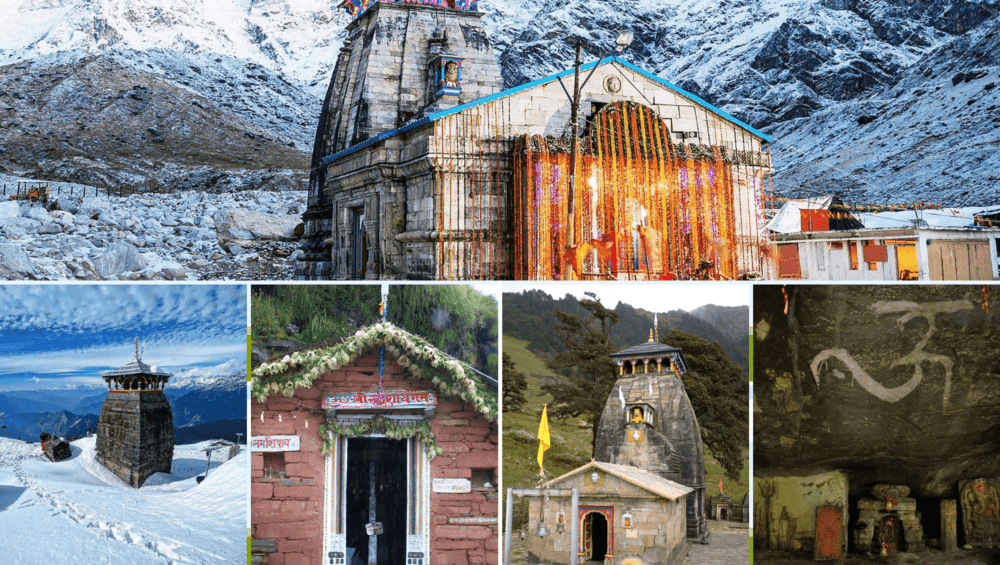

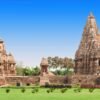



2 Comments
I wish to visit Madhyamaheswar, Tunganath and Rudranath temple in the 3rd week of May ’23. Please send your itinerary. I am a solo traveler and aged 64 years.
Thanks for your message.
we have noted your requirements for Panch Kedar Yatra Trek and our expert will send you the details soon.